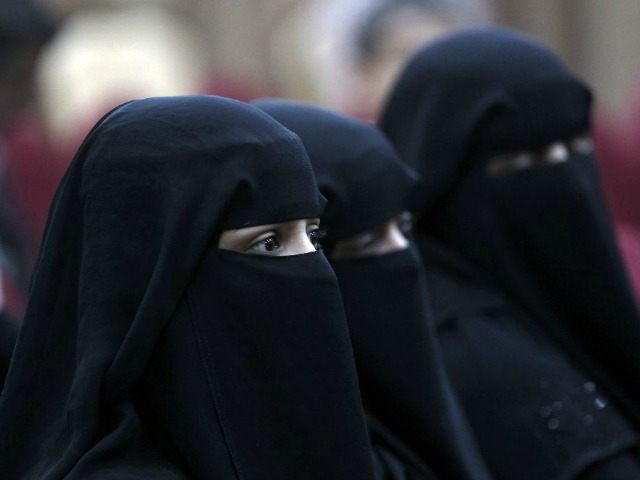Qatar’s government-owned Islamweb.net is showing a video in which an Islamic mother teaches her daughter that Muslim girls who do not wear the hijab or who wear clothing that shows their arms, legs, or hair are “closer to Satan.”
The Middle East Media Research Institute (MEMRI) posted the video clip of “Salma and the Hijab,” in which a young Muslim girl – ambivalent about wearing a hijab – argues with herself about whether the hijab is important. Ultimately, her mother teaches her that to choose not to wear it or to desire wearing Western clothing that bears the hair, arms, or legs is to bring her “closer to Satan.”
A portion of the transcript MEMRI provides is as follows:
Salma: “Today, my mother and I will go to buy clothes shopping, Allah willing. I want to buy a new hijab.”
Salma’s thought: “And what if I don’t buy a hijab?”
Salma: “But…”
Salma’s thought: “Try it, Salma. Perhaps you’d look nice without a hijab.”
Salma: “But I like the hijab”
Salma’s thought: “Salma, you are still little. You don’t need the hijab now. When you grow up…”
Salma’s mother: “C’mon Salma. Hurry up little girl. We don’t want to be late.”
Salma: “I’d like to know what my mother thinks about me not wanting to wear the hijab, but I don’t know how to…”
Salma’s mother: “What’s bothering you, Salma? I can see that there is something you want to say.”
Salma: “The truth is that I would like to know more about the hijab, Mother.”
Salma’s mother: “The hijab, my daughter, is a natural thing for the Muslim woman. The Prophet Muhammad ordered us to wear it, so anyone who abides by this is being obedient to Allah and His Prophet, and she gets many rewards. As for someone who does not wear the hijab, revealing parts of her body, like her hair, her arms, her neck or her legs – she is closer to Satan and denying Allah, the All Merciful. A Muslim woman must wear the hijab, and must not wear just any item of clothing she sees in the market. Islamic clothes have special requisites.”
Salma: “What are these requisites, Mother?”
Salma’s mother: “It must conceal the body. A Muslim woman must not wear a short garment, which reveals the legs for example. The fabric must be thick, not see-through, because see-through clothes reveal the body rather than conceal it. The garment must be wide, not tight because tight clothes reveal the body’s size and shape. It must not have any decorations that would draw attention on it. It must not be perfumed, and must not resemble the clothes of men.”
The program then asks the children to “Help Salma buy clothes that would be in line with the proper characteristics of the hijab.” Students then use the cursor to click on the appropriate characteristics.
The education software program is in sharp contrast to recent events in the United States and other Western nations during which schoolgirls and young women on college campuses are invited to don the hijab as a means to show “solidarity” with Muslims.
In December, Muslim women Asra Q. Nomani and Hala Arafa denounced these events in which they claim Americans are getting “duped” by a Muslim sexist agenda. They say they would rather see Americans stand against the ideology of Islamism that represses women and demands Muslim women cover themselves.
Nomani and Arafa explain that while both were born into conservative families that had no edict for women to cover their hair, following the Iranian revolution of the minority Shia sect in 1979 and the rise of the “well-funded” Saudis from the majority Sunni sect, they “experienced bullying to cover [their] hair from men and boys.”
“This ideology promotes a social attitude that absolves men of sexually harassing women and puts the onus on the victim to protect herself by covering up,” the women write. “The Muslim Reform Movement, however, supports the right of Muslim women to have the option of wearing the hijab or not.”
“As Americans, we believe in freedom of religion,” they state, adding:
But we need to clarify to those in universities, the media and discussion forums that in exploring the “hijab,” they are not exploring Islam, but rather the ideology of political Islam as practiced by the mullahs, or clerics, of Iran and Saudi Arabia, the Taliban in Afghanistan and the Islamic State.

COMMENTS
Please let us know if you're having issues with commenting.